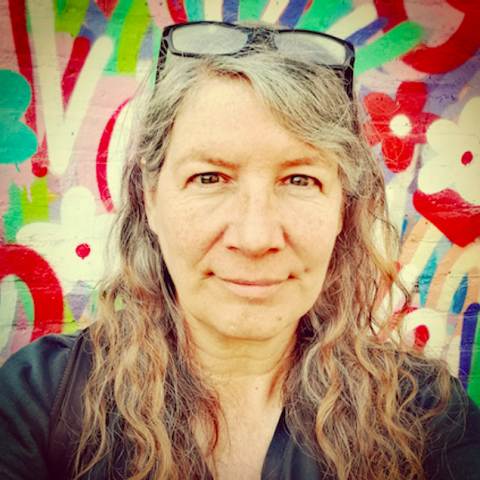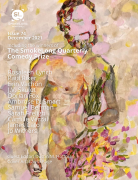This story, with so many big life things going on in such a small space, is a wonder. What sparked it and how does the title relate to your inspiration, if it does at all?
Thanks, Hananah! It’s one of the great things about flash fiction, that we get to plant all these seeds, hoping they’ll grow. A lot of my writing is around the uses we have for a woman’s body and the social, religious, and capitalist pressures. Whether it’s the commodification or objectification or how our bodies are controlled to reproduce a workforce to keep the cycle going or the effects of climate crisis. Every International Women’s Day and month I look for the seeds of such stories. In March 2020 I wrote a micro, “Other Uses for a Woman’s Body,” and in March 2021, this story, “Our Lady of Perpetual Plastic.”
I wrote it after reading a headline about proposals that attacks on statues be given longer prison sentences than attacks on women and two articles, one from Erin Brokovich, on the effects of plastics on fertility. All against a background of climate crisis and bans on single-use plastic and research showing the amount of plastic we ingest each month is about the equivalent of a Lego brick.
I always admire stories that are ambitious with the way they are structured and this one certainly dictates its own rules with punctuation. Like a single-sentence story.
I’d write everything in a breathless paragraph if I could. I love how a first-person narrative flows like a stream of consciousness and I find it easier to read aloud carried on the tide, however, it doesn’t work for everyone, so I take editorial advice and pause, and leave some white-space stepping stones, but there is something powerful about a block of text filling an entire page like an ocean, especially if it’s justified (in both senses!).
As I read the story, I realized that it had a sort of internal rhythm and that there were words playing together in rhyme and music. Was that intentional or something the story brought up? Can you talk about the effect you meant to create?
The story always had the rhyme of fields and yield in the first line. I liked how it brought up and linked ideas around climate crisis and food production and reproduction and the other meaning of women’s bodies yielding to pressure.
I love reading my work aloud to my first reader (my partner, Tom O’Brien, another writer). I am an anxious reader for others but noticed how it was easier to read aloud when it flowed more easily, like a song or the oral tradition of storytelling. And of course writing workshop advice is to read it aloud to hear if it sounds right. I do chase patterns and symmetry. I find rhythm, rhyme, and repetition soothing, and I love how prose poetry and flash fiction overlap. A couple of weeks ago, someone told me how much they liked my poetry reading after I read a piece of flash fiction. I took it as a compliment. I admire poetry and this is as close as I get to it.
This story is an interesting mix of themes—belief in religion and motherhood and the fickle gods of plastic (perhaps consumerism?) Can you talk about how each of these came to be of interest to you?
As a girl growing up in a Catholic patriarchy in Ireland, as an immigrant mother of a girl, as a youth and community worker working with families and a peer supporter of women around their pregnancy in London’s East End, I see how women’s bodies are constantly being controlled and I know our vulnerability in climate crisis, socially, economically and culturally. Capitalism is killing women and the planet, while billionaires are taking day trips to space. Meanwhile, declining fertility rates and Gilead-type laws are giving women fewer choices. I feel a responsibility to talk about it and flash fiction is one of the places I can plant seeds.
Are you a Lego-builder and if so, what is the biggest thing you have ever made?
We have Lego at most of our youth centre sessions. It’s great for creativity and those conversations you can only have when your hands and eyes are busy. We do “biggests” and “bests” but try to redistribute the wealth of gold stars. The biggest thing I made recently was in a challenge to build the best bridge across two chairs. Mine was the longest and to the untrained eye it might look like it was the best, but when we changed the criteria to strength by seeing which would hold an object’s weight, one of the young people’s bridge was best, and when it came to creativity, another young person’s was best. And however corny it sounds—everyone did do their best!



